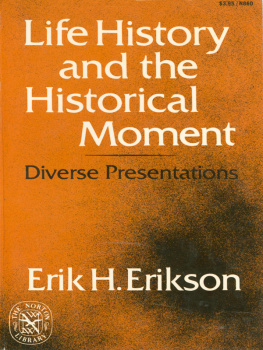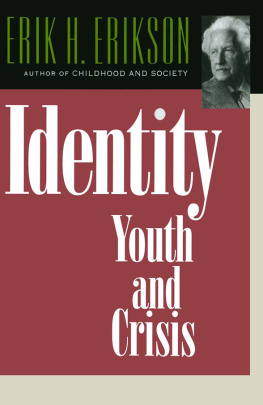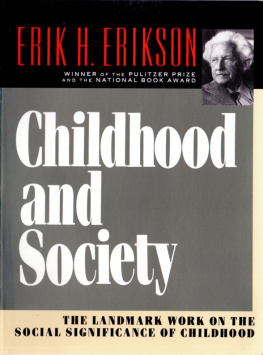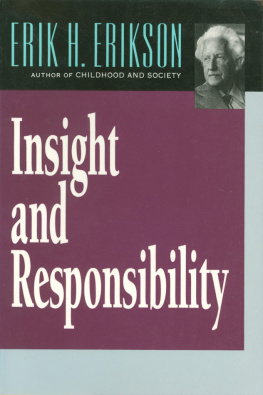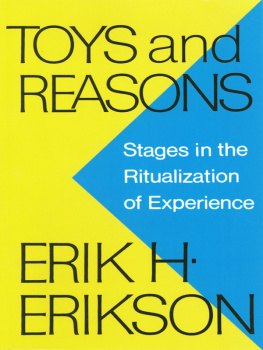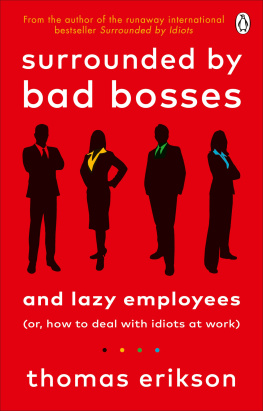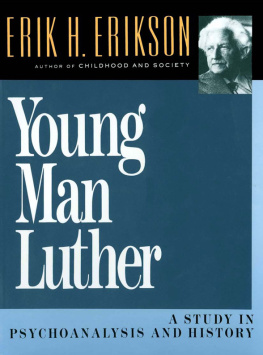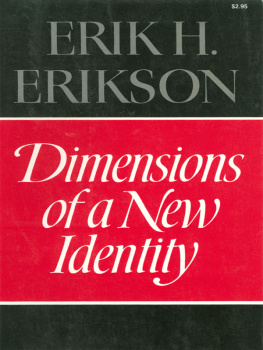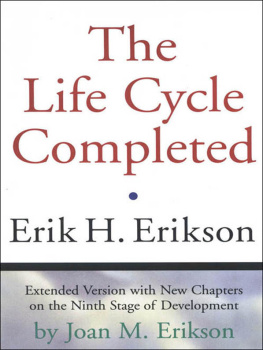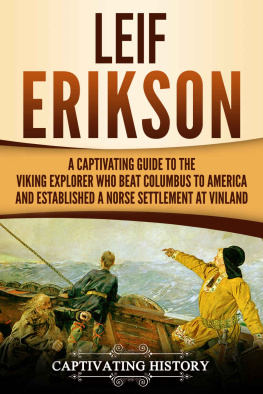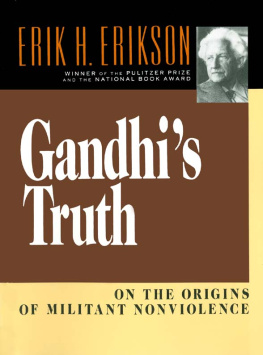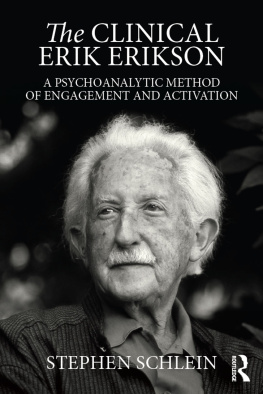
BY ERIK H. ERIKSON
Childhood and Society (1950, 1963)
Young Man Luther (1958)
Insight and Responsibility (1964)
Identity: Youth and Crisis (1968)
Gandhis Truth (1969)
In Search of Common Ground (1973)
(with Huey P. Newton and Kai T. Erikson)
Dimensions of a New Identity (1974)

To Staff and Students of Soc. Sci. 139 and 133, The Human Life Cycle, Harvard University, 19601970
Contents
T HIS BOOK is made up of reflections offered to diverse gatherings during a decade of academic teaching and traveling. The main essay in each section was first presented at one of the symposia convoked by Daedalus, the journal of the American Academy of Arts and Sciences. Here men and women from a variety of fields come together to work on one theme. It was my double task to clarify for the participants from other fields something of the special nature of psychoanalysis and, thus, of the kind of light it could throw on the main theme, and yet also to ask myself and those conversant with my field what we may yet have to investigate when confronted with such new tasks. Thus, when representatives of the natural and the social sciences discussed the emergence of innovative concepts in their or their colleagues careers, I was asked to reflect on the origin in my life of the concept of identity crisis. When historians discussed the nature of charismatic leadership, I reflected on my ongoing studies of Gandhis emergence as a leader. And in a timely disputation on The Embattled University, I spoke of the students struggle for inner liberation.
But each section also contains communications of a more diverse nature. My autobiographic reflections are followed by two book reviews of Freuds posthumous works. The section on Gandhi is concluded with an address given to students in South Africa where Gandhis leadership began. In the section on modern liberation, there is a response to a former student who had asked me to look back on what I had written on women in the past.
Can I possibly claim that one over-all theme orchestrates all these occasions? I think that the books title states it: it is the relationship of life histories to the historical moment. This concerns the life histories of great leaders to the historical moment of their emergence and the life histories of those who decided to follow them; it concerns the awakening of whole groups of contemporaries (young people, modern women) to a need for inner as well as political liberation; and it concerns, throughout, the life histories of us, the observers, defined as we are by our own past, by the history of our field, and by the tasks of the times. The reader is invited, then, to considerif ever so criticallywhere and how our approach touches on his own life and work.
Personal Acknowledgments
There are few good thoughts in these pages which did not first emerge in conversations with Joan Erikson, and wherever a word seems just right, it is usually hers.
The editors of Daedalus, Stephen Graubard and Geno Ballotti, are devoted hosts to emerging ideas. For this and for the permission to re-edit my contributions to their symposia, my warmest thanks.
Pamela Daniels, always a thoughtful critic, helped me with the selection of the essays and the editing. She was also the last of the head section leaders in my course at Harvard: Ken Keniston, Gordon Fellman, and Dorothy Zinburg preceded her. They and the section leaders (a proud list, could I name them all) helped me to stay in touch with the students in those turbulent years. Now, I can only offer them and the erstwhile students this more formal dedication.
Time to travel and to reflect was provided by fellowships in the Center for Advanced Study in the Behavioral Sciences and in the Field Foundation.
Elizabeth Resnik and Sherrill Brooks, neighbors and friends in East and West, prepared the final draft.
And at long last, I wish to thank my lifelong publisher and helpful critic, George P. Brockway.
Tiburon, California
T HE PRESENTATIONS , all re-edited for this volume, were first published in the following magazines and periodicals:
Identity Crisis in Autobiographic Perspective and Postscript and Outlook first appeared in Daedalus: Journal of the American Academy of Arts and Sciences, Fall, 1970.
A Historic Friendship: Freuds Letters to Fliess appeared in the International Journal of Psychoanalysis, vol. 36, no. 1, 1955.
A Questionable Cooperation: The Wilson Book first appeared in the New York Review of Books, vol. 8, no. 2, 1967, and in the International Journal of Psychoanalysis, vol. 48, no. 3, 1967.
On the Nature of Psycho-Historical Evidence, parts 1 and 3, appeared in Daedalus, Summer, 1968.
His Own Witness: The Leader as a Child first appeared in The American Scholar, vol. 35, no. 4, 1966.
Freedom and Nonviolence was published under the title Insight and Freedom as the ninth T. B. Davie Memorial Lecture, University of Cape Town, 1968.
Reflections on the Revolt of Humanist Youth appeared in Daedalus, Winter, 1970, and in the International Journal of Psychoanalysis, vol. 51, no. 1, 1970.
Once More the Inner Space is appearing simultaneously, in somewhat different form, in Jean Strouse, ed., Women and Analysis, Grossman Publishers, New York, 1974.
IT IS IN THE NATURE of psychoanalytic inquiry that I should apply the very concept which has been suggested for discussion to the history of its emergence in my life and work experience; and that I should do so in some self-analytic detail: for in this way I may also be able to illustrate some motivational dimensions in the formulation of a new idea.
This, however, raises the question whether identity crisis can, indeed, claim to be an innovative concept in my own field, psychoanalysis. Another representative of my profession might well assert that the concept is not, strictly speaking, psychoanalytic, because it deals with matters too close to the social surface to remain sufficiently grounded in the theory of the dynamic depth. To him, such judgment would only be confirmed by the fact that identity concepts have secured themselves rather quickly a place of familiarity in the thinking or, at any rate, the vocabulary, of a wide range of readers in a number of countriesnot to speak of its appearance in cartoons which reflect what is intellectually modish. But then, the term has also begun to denote a universal, if often controversial conflict of general relevance. Thus, it was reported in the press that the Pope in a recent speech recommended the steadfastness of a newly sainted sixteenth-century Spaniard of Jewish descent to the young priests of our timea time when they say the priesthood itself suffers... a crisis of identity. The use of this term, I am told, may be related to the fact that some young priests in Rome were reading Il Giovanne Lutero.
I must postpone for another occasion the question of how concepts and terms dealing with human development and motivation may be absorbed into the ethical (and pseudo-ethical) climate of their time. Here, I will once more restate why and how the assumption of a phychosocial identity appears to be a conceptual necessity; and why and how it may, in fact, be relevant to the motivational nature of innovation.
Let me begin by presenting a kind of glossary which will, if not define, at least circumscribe for our present purposes what an identity crisis is. Here I take heart from the reassurance of Stuart Hampshire, who has stated approvingly that I leave [my] much misused concept of identity undefined because it primarily serves to group together a range of phenomena which could profitably be investigated together.1 He understood, it seems, the difficulty of establishing the nature and the position of something that is both psycho and social. For we have as yet no unified social counterpart comparable to natural science. In each of the social sciences, in fact, the workings of identity appear in different contexts of verifiability. To say, then, that the identity crisis is psycho and social means that:
Next page
